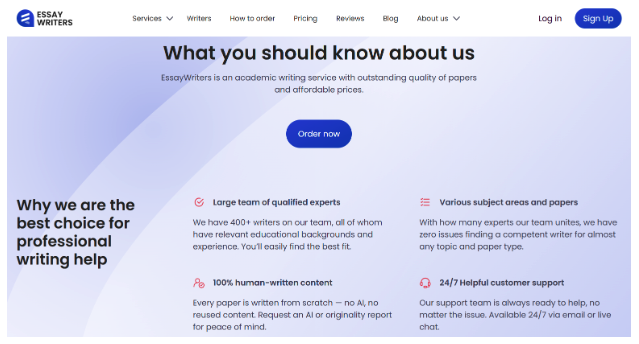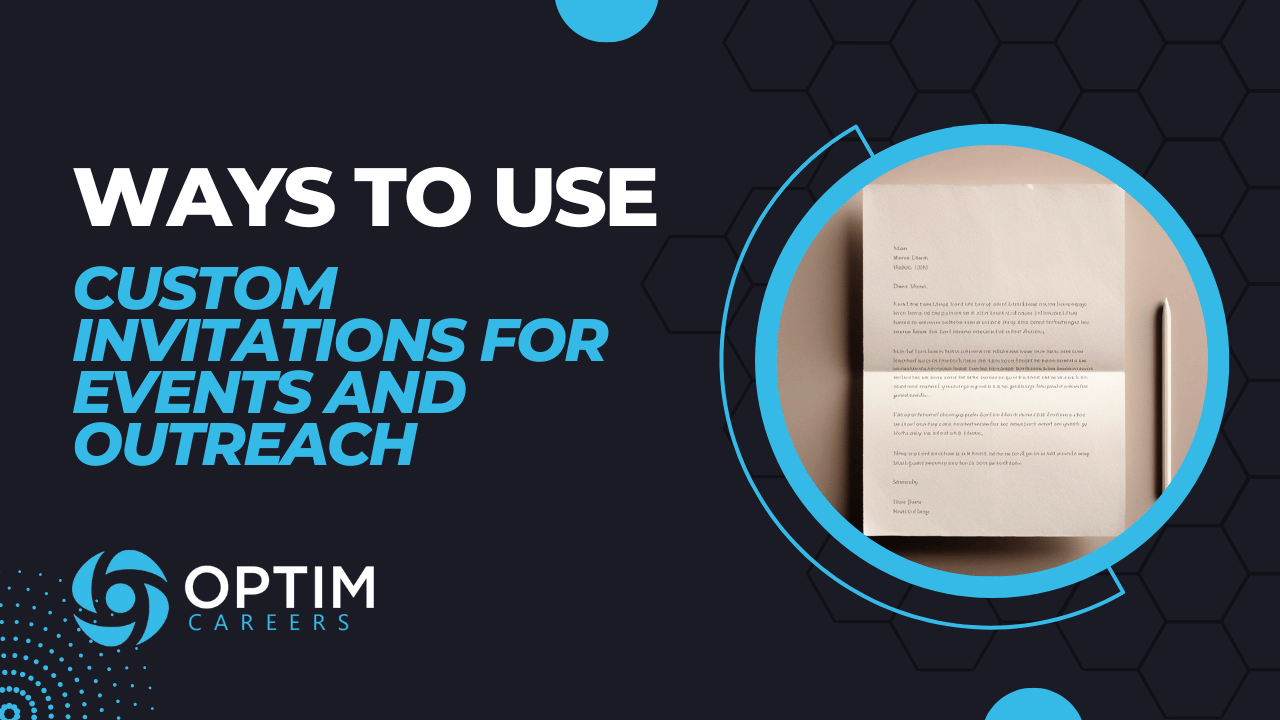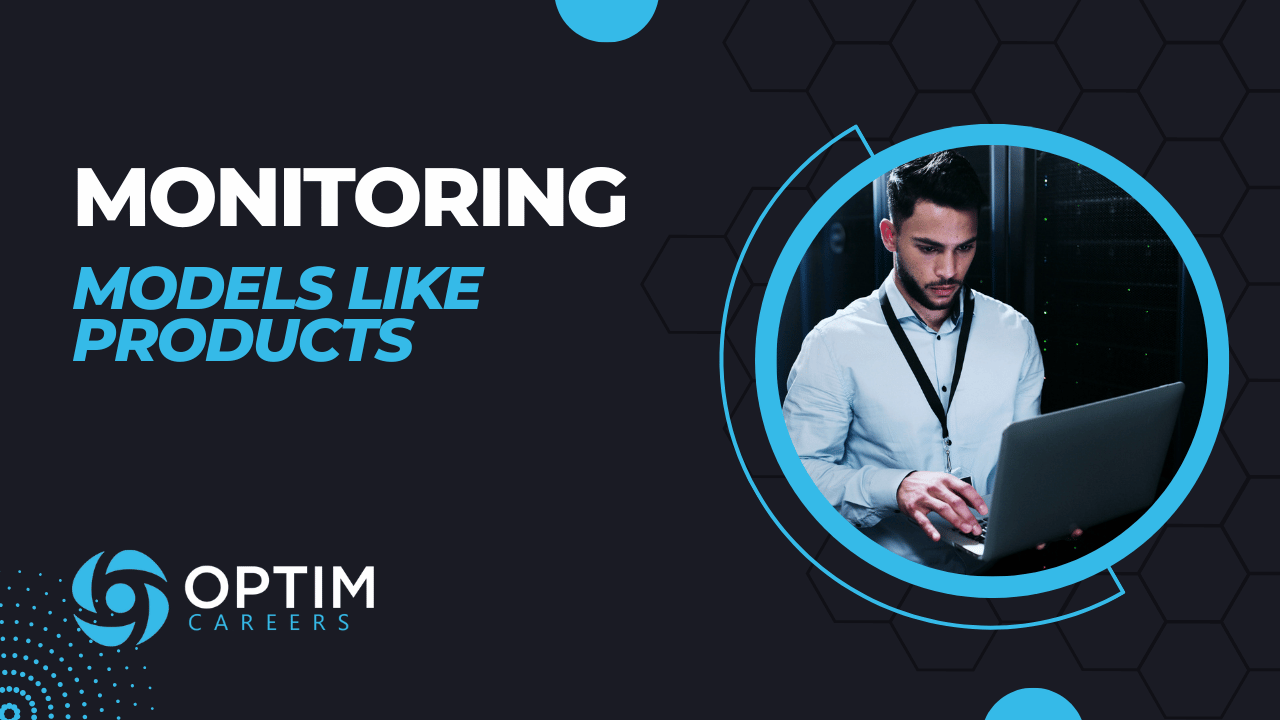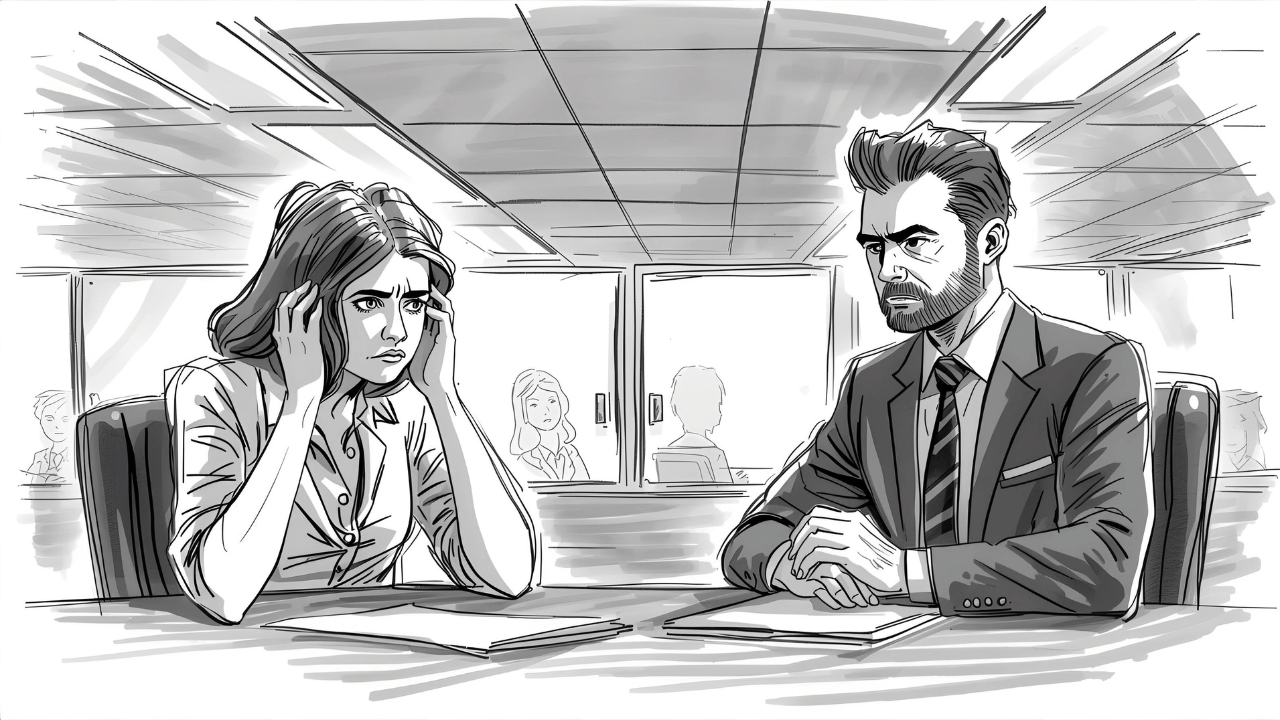Tell Me About a Time You Failed [9 Examples to Steal]
If you’re like me, you can probably think of quite a few failures in life or at least some things you would have done differently knowing what you know now. But none of us would have learned the things we now know if we hadn’t experienced those failures. Failure is one of life’s greatest teachers.
At the same time, it can be really nerve-inducing to talk about these things in a job interview setting where we’re trying to put our best foot forward. These aren’t exactly our proudest moments that we enjoy sharing. But the truth is we all fail. How we handle that failure is really important and a good indicator to future potential employers of how we will respond to other challenges.
In this article, I’ll give you a 3-step framework to answer this question, a handful of examples, and an AI tool that I think can help.
Why Interviewers Ask This Question
Stories about failure can be very telling. They can provide perspective on maturity, resilience, self-awareness, growth mindset, the ability to receive feedback, and how someone handles obstacles.
These are all important qualities interviewers are trying to assess before making a hire and no one writes about failure on a resume, so it seems very relevant to ask the question. You will face challenges in any work situation and how you handle adversity is important for the interviewer to know.
Alternative Questions That Can Be Answered the Same as This Question
You may also be asked some of these questions. Many of them are in an attempt to uncover the same things about how you handle challenges, learn, and reflect. All of them are likely to come up in a behavioral interview. They include:
Share an example of a time when you weren’t hitting the mark.
Tell me when your work didn’t measure up to standards.
Tell me about a time when things didn’t go as planned.
How do you handle failure?
What do you do when you’re frustrated at work?
How do you work through failures?
Tell me about a time when you struggled with a task at work. How did you handle it and work through it?
Describe a time when you had to change course and pivot.
Tell me about a time you received critical feedback and how you responded.
Tell me about a time when you missed a deadline. How did you handle it?
Share an experience where you had to admit you were wrong. How did you handle it?
How to Answer Tell Me About a Time You Failed
Here are the key points you should include when you prepare your answer for a real interview.
Pick a Misjudgment, Not a Mistake
When you think about potential answers to this question, avoid picking things that show a pattern of mistakes or a character flaw. You don’t want to pick a time you failed because you procrastinated. Instead, it’s safest to pick a time when you misjudged something. Everyone misjudged things from time to time.
With that said, be sure that you pick a specific misjudgment. You need an authentic example to use.
Define the Failure
If you set the narrative first, it will help put your example in context for the interviewer. It will also help set expectations. For example, I might consider it a failure to overpromise and underdeliver. Or as a manager, I might consider it a failure when I’m caught by surprise by something that my team did. Or if I was a project manager, I might consider it a failure to go over budget.
Use CARLS, not STAR Method
I find that a modified CARL interview method works best for this answer. CARL stands for context, action, results, and learning. If you add an S, that stands for solution.
Context - What was the situation? Who was involved? What was your role and responsibility in that situation?
Action - What happened? What did you and the team do?
Result - What was the result of those actions (the failure)?
Learning - What lessons you learned based on that result and the actions you took?
Solutions - What solutions did you come up with to ensure that this failure isn’t repeated?
Ask For Feedback
This is one of those questions I would share my ideas with some trusted advisors, friends, or coaches. Make sure that the failure you’ve prepared won’t raise any red flags and that it shows your growth mindset rather than key character traits.
If you work with an interview coach, this is one of the questions and answers I would add to your agenda to discuss because it can trip up a lot of people. It’s also a great question to add to a mock interview with an Interview AI.
Tell Me About a Time When You Failed Example Answer
Here are a few sample answers I’ve prepared using Text Blaze AI. Feel free to use these to inspire your answers. Or if you want to use AI to help you brainstorm ideas or refine your answer using my process, you can download Text Blaze for free, open this article on your browser, and ask it to help you craft an answer using the information on this page. Text Blaze is cool because it can read my article and understand it, then use that to help you.
Marketing Example Answer
Failure to me is when you spend more than you make in return for your marketing campaigns. In my last role, I was leading a team of 4 on a new GTM campaign for a digital product. I made the decision to run an aggressive digital marketing campaign during what I assumed would be peak season based on historical data.
The campaign fell flat. We spent 70% of our quarterly marketing budget but only achieved 60% of our expected conversion rate. Upon reflection, I discovered that our target audience was least active during the months we ran ads.
I learned two things from this experience. First, never rely on historical data without verifying its relevance to your specific product and audience. And second, always validate assumptions through market research before committing significant resources - even if you have to spend some of that budget to do so.
Out of this experience, I created a pre-campaign checklist that includes market research, audience surveys, and small-scale testing requirements along with a staged rollout process that I now use for all of my campaigns no matter how big or small. This involves spending about 10% of our budget before full deployment, but so far, it’s been worth it. The last campaign we ran using these processes we were able to exceed targets by 15% using 20% less budget.
Project Management Example Answer
I consider it a failure whenever a new project is launched and there is any amount of friction or frustration among the users of that project. In my role at XYZ company, there was a time when I misjudged the timeline of implementing a new software across our organization. While we ultimately launched it on time, there were some teams that experienced frustration the first two weeks after launch.
I was responsible for leading the transition from our legacy system to a new platform that would serve 200+ employees. I initially estimated a 3-month implementation timeline based on previous software rollouts I had conducted. However, I misjudged the complexity of the data migration and custom integrations needed, combined with the extensive training required across different departments.
The result was that we were able to hit our go-live date, but we limited time for developing training resources and this caused some friction between a few departments that were using the new software. The experience taught me some valuable lessons about change management.
Always include a buffer time for unexpected technical challenges. It’s best to underpromise and overdeliver. And conducting thorough stakeholder interviews during planning phases is incredibly important.
Since then I’ve added some new steps to a rigorous assessment framework that is used for large-scale and complex project rollouts. It includes detailed technical discovery sessions and pilot programs before full rollouts. In my last software upgrade, we were able to complete the project two weeks ahead of schedule using these methods and had raving reviews from all teams that were affected about the smoothness of the rollout.
Event Planning Example Answer
I define failure as creating inefficiencies that impact our team’s productivity and resources. When I was an event planner at XYZ company, I was managing our company’s event supply warehouse and was responsible for maintaining our decoration inventory. I relied solely on our digital tracking systems without implementing regular physical counts. I assumed the digital records would be sufficient since we had a thorough check-in/check-out system.
When preparing for a series of holiday events, I discovered several discrepancies between our digital inventory and actual stock. While I had enough supplies to fulfill all the events, I had to spend unnecessary time doing emergency counts and updating the system, which took away from other important planning tasks.
From this experience, I learned the importance of regular audits of digital inventory files. I implemented monthly physical inventory counts, created a more detailed check-in/check-out process with photos of items, and developed a color-coding system for seasonal decorations. The company still uses everything I created to this day.
I also created a micro-learning training for teams on proper inventory management procedures. Within 6 months of implementing those strategies our inventory accuracy improved from 72% to 98% and we significantly reduced the time spent searching for supplies.
Sales Example Answer
To me, failure means missing an opportunity to deliver value to someone else. In my previous sales role, I was working with a potential client who seemed ready to purchase our solution. I had known them for years and because of the relationship I moved quickly through the proposal stage and didn’t conduct as thorough of a discovery to understand their specific use cases and technical requirements.
It was after contract negotiations that I realized that I had misjudged the client’s technical requirements. This required a delay in closing the sale and it took away time that I might have been able to spend on other qualified opportunities.
This experience taught me the importance of never skipping fundamental steps, no matter how much you think you know or how promising the deal seems. Since then, not only have I always conducted a thorough discovery, but I’ve also built a detailed discovery checklist that I now use with every prospect.
It’s not only enabled me to understand each client’s technical requirements, but it’s led to smoother handoffs with customer success and product teams, and helped me maximize my personal ROI.
Accounting Example Answer
I consider a failure to be any situation where I don’t achieve an outcome that matches my intentions and effort. One specific example I can think of was when I was managing our year-end closing process for departmental budgets.
I had created what I thought was an efficient spreadsheet system to track closing entries across departments. However, I hadn’t anticipated the volume of last-minute adjusting entries that would come in. While my system worked well for normal monthly closings, it wasn’t robust enough to handle the increased year-end volume which resulted in me staying late several nights to manually process everything.
Though we met all our deadlines and everything was accurate, I consider this a misjudgment on my part because I didn’t properly plan for scalability, which led to inefficient use of time and resources during a critical period.
This experience taught me the importance of building systems that can handle peak volumes, not just regular workflows. In response, I redesigned our tracking system to include automated data validation, better sorting capabilities, and a more streamlined review process. I also created a pre-closing checklist that we now send to department heads two weeks before any major closing period.
These improvements have made our subsequent closings much smoother, reducing overtime hours by 70% while maintaining accuracy. The new system has actually been adopted by other accounting teams in our organization as a best practice.
Human Resources Example Answer
I define failure as any situation where processes don't align with our intended outcomes, particularly when it affects team efficiency. In my first job as an HR Generalist, I was responsible for implementing a new employee onboarding scheduling system. I had created what I thought was a streamlined calendar system for coordinating multiple department orientations.
However, I made the mistake of not consulting with all department heads about their preferred orientation times and availability windows. While the system worked fine for the first few weeks, we started experiencing scheduling conflicts when trying to coordinate between IT setup, security badging, and department-specific training sessions. This resulted in some new hires having gaps in their first-week schedule and others having overlapping sessions.
Though no one missed critical training, I consider this a misjudgment on my part because I didn't gather enough stakeholder input before implementing the system, which led to unnecessary schedule adjustments and some frustration among department trainers.
This experience taught me the importance of thorough stakeholder consultation before implementing any new process. In response, I developed a comprehensive department availability matrix, created standardized orientation blocks that worked for all departments, and implemented a quarterly review process with department heads to adjust timing as needed. I also built in buffer times between sessions to account for any unexpected delays.
These improvements resulted in a 95% reduction in scheduling conflicts and received positive feedback from both department heads and new hires. The system was so effective that it was adopted as the standard onboarding schedule template across all our regional offices.
Receptionist Example Answer
I define failure as any time when office efficiency isn’t at its full potential. When I was a medical receptionist at XYZ practice, I took the initiative to reorganize our paper filing system. I had noticed that it was inefficient, so I took the initiative to create what I thought was a better organizational method. However, I made the mistake of implementing the change all at once, without creating a clear transition plan or properly communicating the new system to other staff members.
As a result, for about two days, there was some confusion among the staff about where to find and place important documents. While no patient information was lost or compromised, it did cause some delays in retrieving files.
This experience taught me the importance of proper planning and communication when implementing any changes, even seemingly simple ones. In response, I developed a detailed transition plan that included creating a reference guide for the new system, training staff in small groups, and implementing changes gradually by section. I also learned to seek input from colleagues before making systematic changes that affect everyone's workflow.
The revised approach was much more successful, and we eventually achieved a more efficient filing system that actually reduced file retrieval time by about 30%. Now, whenever I propose any operational changes, I always create a detailed implementation plan and ensure proper communication with all affected staff members first.
Customer Success Example Answer
I define failure as any situation where we miss an opportunity to proactively support our customers' success. In my role as a Customer Success Manager at a SaaS company, I was managing our quarterly business reviews (QBRs) with enterprise clients. I had developed what I thought was an efficient template for preparing and presenting these reviews.
However, I made the misjudgment of using the same standardized template for all clients. While the basic information was helpful, I noticed during one particular QBR that the client seemed disengaged because the templated information wasn’t aligned as well as it could be with their primary objectives due to the template.
Although the client renewed their contract, I consider this a failure because I missed an opportunity to deliver maximum value and demonstrate a deep understanding of their business needs. This experience taught me the importance of balancing personalization with standardization to achieve both value for a client and efficiency for myself and team members.
In response, I developed a pre-QBR assessment framework that includes reviewing each client's original success criteria, recent support tickets, feature usage patterns, and business objectives. I also created different QBR templates for various industry verticals and use cases. These improvements led to much more engaging QBRs, with clients actively participating in strategy discussions. Our post-QBR satisfaction scores increased by 40%, and several clients have specifically mentioned how valuable these personalized reviews are for their business planning.
Customer Service Example Answer
I define failure as any instance where we miss an opportunity to improve our team's efficiency and communication. In my role as a customer service representative at ABC Company, I was responsible for maintaining our team's shared knowledge base of customer solutions and frequently asked questions.
I noticed that some of our documentation was becoming outdated, so I took the initiative to reorganize and update our internal knowledge base. However, I made the misjudgment of updating multiple sections simultaneously without first creating a changelog or notifying my team members about where to find the revised information.
While no customer interactions were negatively impacted, for about two days our team experienced some confusion trying to locate specific support articles, which caused slight delays in response times as team members had to ask each other where to find certain resources.
This experience taught me the importance of clear communication and proper change management, even for internal improvements. In response, I developed a systematic approach to knowledge base updates that includes: creating a detailed changelog for all modifications, updating only one section at a time, and sending team-wide notifications about changes with direct links to new resource locations. I also implemented a monthly review system where team members can suggest updates or flag outdated information.
These improvements resulted in a much more efficient knowledge sharing system, reducing the time spent searching for resources by 40% and improving our team's first-response resolution rate by 25%.
Tell Me About a Time When You Failed Tips
Pick One Failure, Not Several
When delivering your answer, focus on one thing that went wrong, not a string of things. Remember, this question isn’t about the mistake so your actual failure doesn’t matter as much as the rest of your answer. You do not want to show a pattern of behavior, but rather that this was a one-time misjudgment.
Don’t Focus on the Failure, but the Learning
Do not spend a lot of time discussing the failure and what went wrong. You do need to mention it, but the majority of your answer should be spent discussing what you learned and how you turned the situation around or prevented it from repeating itself in the future.
You realized what went wrong, appreciated the learning opportunity, and you corrected it.
Tiffany Cheng, a former VP at Volvo, suggests using words like consequence, event, or process instead of using the word failure at all.
Take Responsibility
Do not, and I repeat, do not try to avoid responsibility, or shift blame. Taking responsibility shows maturity and that’s exactly what you want to do here.
Don’t try to use the word “we” the entire time to make it sound like the team made the mistake. The question is about a time when you failed. Trying to tell a story about how someone else failed (or your team failed) is a failure to answer this question.
Tell them what your role was in the failure and what you would do differently.
Avoid Big Failures
Like I said earlier, choose a misjudgment, not a mistake that cost your company a bunch of money or damaged its reputation. Also, avoid using any failures that involve a key trait or skill required for the job. For example, if you were in accounting, you wouldn’t want to pick a mistake such as not balancing a subledger. That would show carelessness and a lack of detail.
Look for moments when you had to pivot or choose a new direction, not a total failure. The interviewer isn’t looking to hear about a personal failure.
Do Not Skip CARLS
I’ve sat in thousands of interviews and one thing I’ve seen many people get wrong when answering this question is that they discuss the context of the failure and then skip to the solution like they’re Harry Potter using an incantation to make it all go away. If you do this, you miss out on the opportunity to tell the interviewer about who you are as a person and how you handle adversity.
Do Not Spin the Failure
Don’t try to rationalize or minimize the failure you share. Don’t defend it.
Action Words To Use In Your Answer
Here are some good choice words to incorporate into your answer.
Gained Insight
Realized
Improved
Reflection
Corrected
Overcame
Recalibrated
Adjusted
Learned
Adapted
Moved Forward
Revisited
Tell Me About a Time You Failed Recommended Reading
Why Are You Interested in This Position [Interview Guide]
How to Use AI For Interview Prep
Cole Sperry has been a recruiter and resume writer since 2015, working with tens of thousands of job seekers, and hundreds of employers. Today Cole runs a boutique advisory firm consulting with dozens of recruiting firms and is the Managing Editor at OptimCareers.com.

















